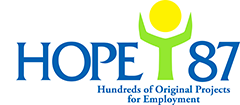BeST: Beyond Survival – Transforming the power of communities
Impact: Increased capacity of the refugees and host population civil society actors and communities to improve self reliance.
Outcome: Ownership and independence of in-country partners are reinforced and localisation activities are promoted sustainably to improve prospects of refugees and host communities in Pakistan.
Currently, the lion’s share of the development cooperation budget for prospects for refugees and host communities and migration cooperation is spent through international and multilateral organisations. Although these organisations have the advantage of operating on a large scale, they are generally further removed from local contexts and knowledge than people from the communities themselves, such as migrants, refugees and host communities. Local organisations led and/or formed by people who are directly affected by the negative consequences of migration and displacement are usually more closely attuned to the needs of this target group. As a result, the voices of those most affected are not heard sufficiently.
The action will simultaneously help break this pattern and reinforce the ownership and independence of local actors (in-country partners) and support activities in the field of prospects for refugees and host communities.
The proposed intervention is;
A. Capacity building of in-country partners and
B. Direct funding of in country partners.
Through the blended approach involving both capacity building and direct funding simultaneously local actors/in-country partners aren't just handed resources blindly; they decide on how best to use them while learning invaluable skills along the way. The starting point is the communities we serve, through the support partner (HOPE’87) and in-country partners. The intervention builds in flexible action, monitoring, evaluation and learning drawing upon the strengths of the support and in country partners and specialized external expertise beyond capabilities cultivated locally.
This intertwined approach reinforces the ownership and independence of in country partners and support activities in the field of prospects for refugees and host communities in Pakistan. By focusing on capacity building and direct funding, the action will allow local communities to take charge of their destiny rather than being passive recipients of foreign aid.

